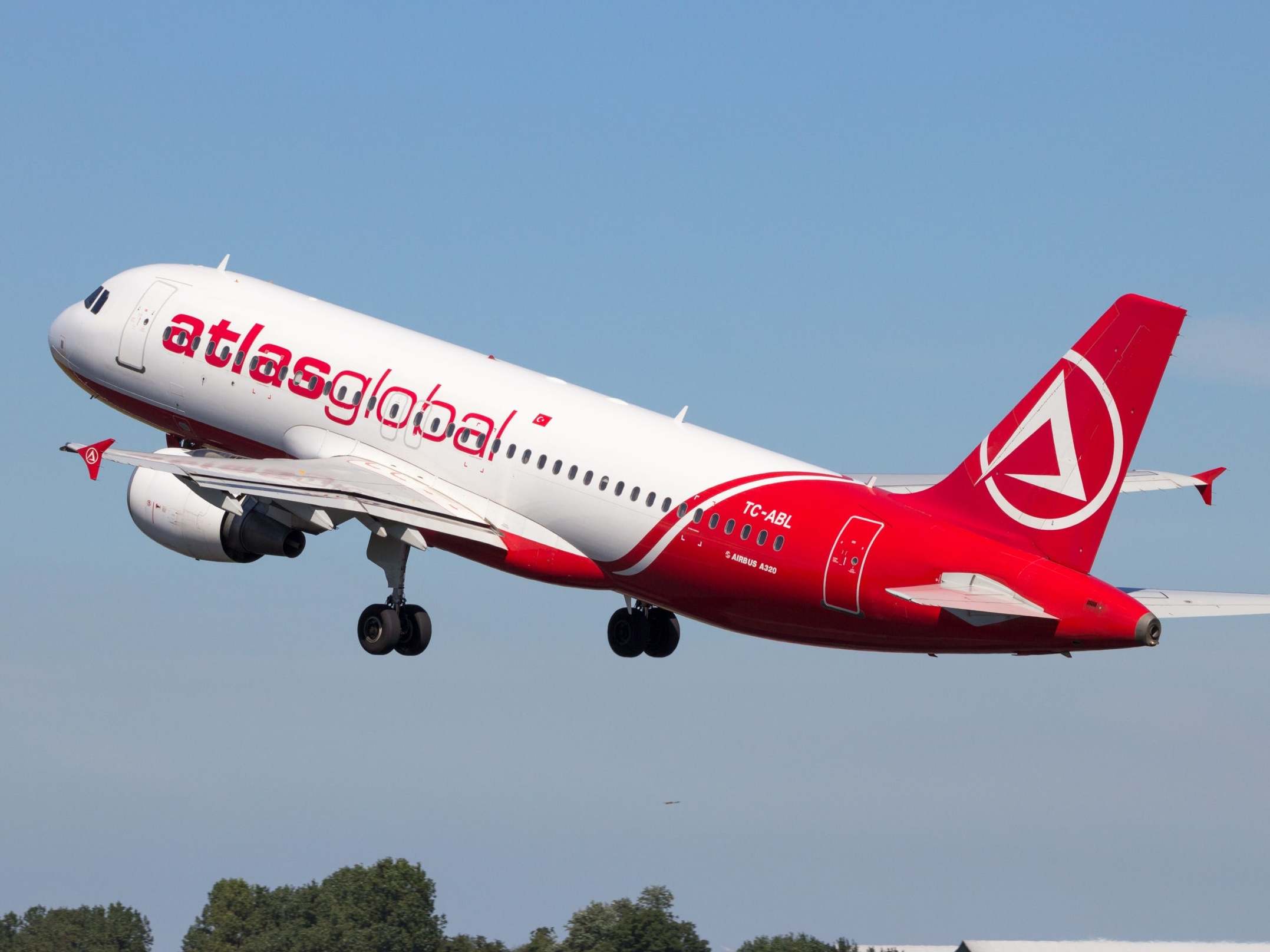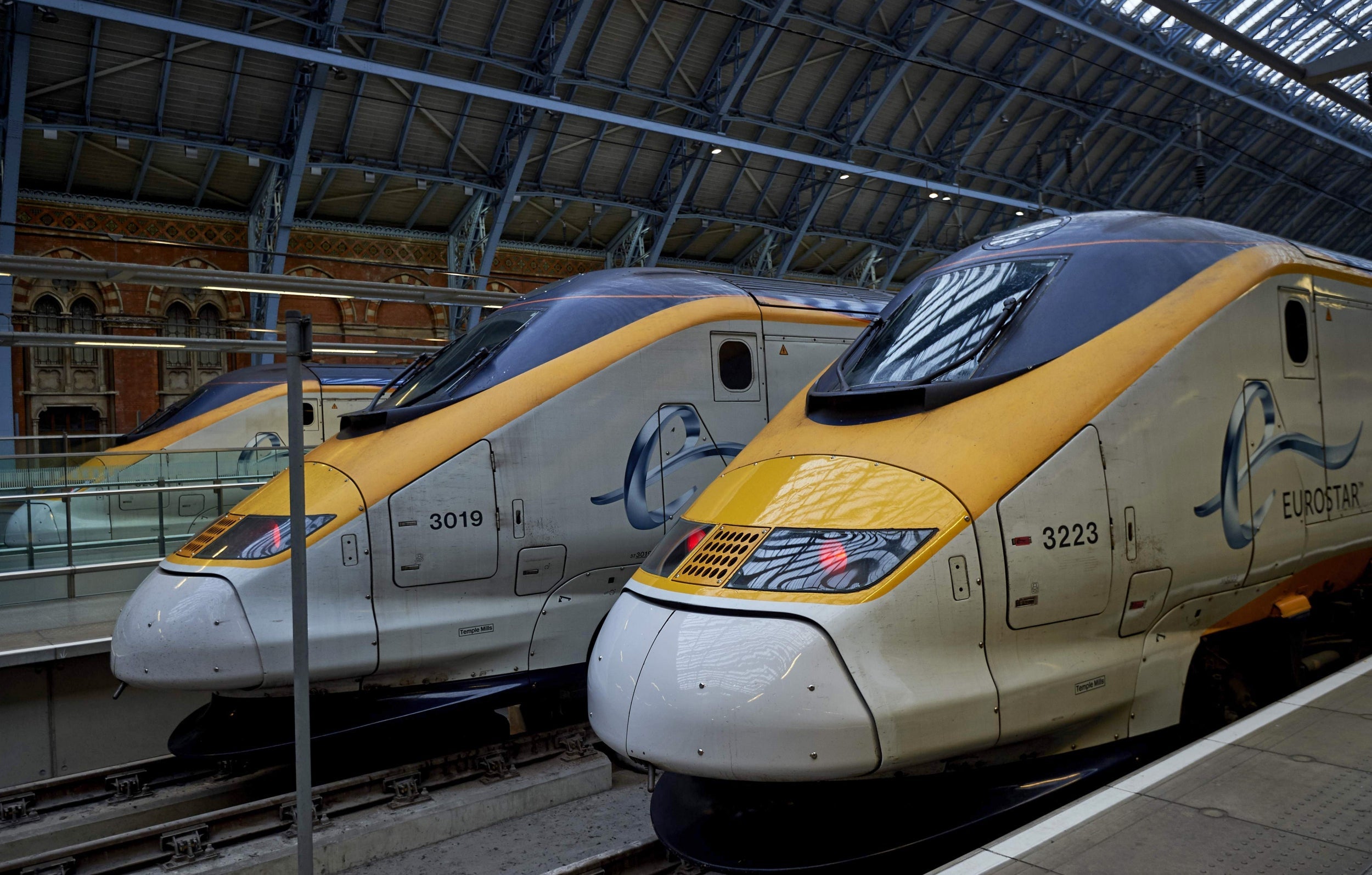Another airline is in trouble... how can travellers avoid getting caught out?
Simon Calder answers your questions on vulnerable firms, flight changes, rail travel in Europe


Q I see that yet another airline, Atlas Global, is in trouble and has suspended flights. There seems to be a lot of it about. Do you have any top tips for avoiding being caught out when an airline goes bust?
Douglas B
A Atlas Global was an unlucky airline. It was set up in Istanbul in 2001, a few months before the tragedy of 9/11 and subsequent aviation downturn. It managed, though, to lurch along for 18 years and (under the brand AtlasJet) flew for a time between Luton and Istanbul.
Travellers with reservations on Atlas are now being told: “We have entered a new phase of restructuring in order to provide you a unique flight experience.” That is very likely to comprise an experience of not flying.
While it hopes to be flying again soon, all the evidence is that once an airline like this stops flying everything unravels quickly: lessors want their planes back, staff want their wages (and new jobs), banks won’t lend any more to the airline.
Wow Air and Jet Airways, which went bust in March and April respectively, followed a similar pattern – desperately trying to “restructure” against all the odds. (Thomas Cook was a very different failure: the reputedly profitable airline was dragged down by the parent company.)
From a rational passenger’s point of view, I cannot see much of a downside to flying on a struggling airline. Over the years I have flown on at least a dozen airlines that have subsequently gone bust, and from Jet Airways to Monarch to SkyEurope I have enjoyed their service and (plainly unsustainable) fares.
Just make sure you pay by credit card, to be confident of a refund, and have a plan B. That plan might constitute a good-quality travel insurance policy that covers your losses from a scheduled airline failure: the cost of a new flight as well as out-of-pocket expenses. But personally I am happy to rely on other airlines stepping in to offer “rescue fares”, at low cost, as they have done for decades.

Q We were looking forward to our afternoon flight from Manchester to Corfu in mid-September, but 10 days beforehand the timing was brought forward by Tui by nine hours, to a 6.35am departure. To us at the ages of 77 and 74 respectively this was unacceptable.
We were not allowed to cancel. We had also paid for a bottle of champagne on board which was, our agent said, non refundable. We subsequently booked on another flight with Jet2 at 3pm, at a cost to us of £300. We realise it must be in the small print, but don’t you think it is time these big companies were brought to book?
Carole B
A The Tui small print says that only a change in flight time by more than 12 hours would allow you to claim a full refund. So I am afraid that when you booked with Tui, you accepted the risk of an ultra-early departure. This is a standard condition with holiday companies; Jet2 Holidays also says that a change in flight time by less than 12 hours is “insignificant”. Of course it won’t feel like that to you.
Tui’s Manchester operation has been affected by the continued grounding of the Boeing 737 Max, which led to many changes to its flight operations through the summer.
It is possible that Abta, the travel association, may take your side if you complain to the organisation – especially about the bottle of champagne. After all, if you had accepted the change, you may well not have felt like fizz on an early morning flight. I am disappointed that the agent hasn’t fought your corner at least for this element.
Otherwise, all you can do is hope that the same thing doesn’t happen on a future holiday. As regular readers of this column will know, at off-peak times (such as mid-September to Corfu), I recommend booking late to avoid disappointment.

Q On the subject of international rail travel, you recently said on television you had not been able to find an online travel agent that can reliably connect any two points in Europe. What about Trainline?
Name withheld
A I am familiar with Trainline and I like the way that it offers long-distance coach travel in addition to rail services; so too does Rail Europe (formerly known as Loco2), which I find to be slightly cheaper. Despite the conservatism of many European train operators, who seem unconcerned about expanding connectivity, both organisations have come up with something that is analogous to the airlines’ instant systems. But they are not yet perfect.
Trainline has a clear disadvantage, which is the insistence: “Trips to Europe start with a Eurostar from either London St Pancras, Ebbsfleet or Ashford International. For now, you’ll need to book your journey to one of these stations first and then buy tickets for your onward journey.”
In contrast, Rail Europe can provide trips such as Manchester-Milan and Birmingham-Barcelona. If people are to be lured away from planes to trains, then this relative simplicity of booking is to be applauded. But I am not sure that the process is yet as smart as it could be.
I am trying to book Birmingham to Barcelona for first thing tomorrow morning (7am). This should be a simple journey: 7.10am from Birmingham New Street to London Euston, arriving at 8.31am. A 10-minute walk (or two-minute Tube) to St Pancras International, with bags of time to check in for the 9.40am to Paris. There’s 80 minutes to change stations in the French capital, and grab a quick lunch at Gare de Lyon, before the afternoon train to Barcelona – arriving at 8.34pm, in good time for dinner (at least in Spain). The overall journey should take just over 12 hours.
But Rail Europe, whom I have asked for a quote, wants me to dawdle in Birmingham until 8.50am, and consequently spend 14 hours in Perpignan – arriving in Barcelona only at lunchtime the following day.
I presume the Rail Europe system insists on a minimum connecting time in London, which triggers the unfortunate sequence of trains that I was offered. That, of course, is entirely its choice. But it provides an illustration of why I prefer to assemble European rail trips myself rather than going through online agents. I also follow the advice of Mark Smith, the international rail guru who runs the Seat61.com website.
Hopefully systems at Rail Europe and Trainline will improve soon.

Q I have just booked flights with FlyBosnia. Then I heard the airline might be in financial difficulty. From what I see it’s backed by Saudi investors. What’s your view?
Helen H
A FlyBosnia is an interesting start-up airline. It is based in the Bosnian capital, Sarajevo, and appears to be a one-aircraft operation. It has just three routes, connecting Sarajevo with Luton, Rome and the Saudi capital, Riyadh.
Services to each destination operate only twice weekly, and unfortunately there are no same-day connections (so, for example, you can’t use Sarajevo as a hub between Luton and Riyadh).
The standard fare is €99 (£85) each way on the Luton and Rome links, and €199 (£170) from Sarajevo to Riyadh. Since Sarajevo is otherwise difficult and expensive to reach, FlyBosnia should work just fine if the limited choice of dates works for you.
Any single-plane airline is saddled with enormous fixed costs, which makes profitability extremely difficult in a challenging market. FlyBosnia launched just as another Balkan airline, Adria Airways, collapsed: the Slovenian national carrier could not cope with the competition of low-cost airlines, particularly Wizz Air of Hungary.
Wizz Air will, no doubt, see how FlyBosnia performs with the Luton-Sarajevo link. If demand is robust, Wizz is likely to move in on the same route. On the closest equivalent, Luton-Belgrade, it regularly offers fares of just £40 each way.
One recent FlyBosnia passenger, though, reported just 16 passengers on the flight – barely enough to pay the airport handling charges, let alone staff wages, fuel and the aircraft lease.
Simply to get off the ground, FlyBosnia must originally have had some backers with deep pockets. But if the airline’s performance falls way short of the promised business plan, they may decide to cut their losses.
So long as you have booked direct and paid with a credit card, you should be able to claim your cash back if the airline ceases trading before you fly. Personally I wouldn’t commit to accommodation or any other costs in Bosnia in advance, just in case.
Email your question to s@hols.tv or tweet @simoncalder
Join our commenting forum
Join thought-provoking conversations, follow other Independent readers and see their replies
Comments